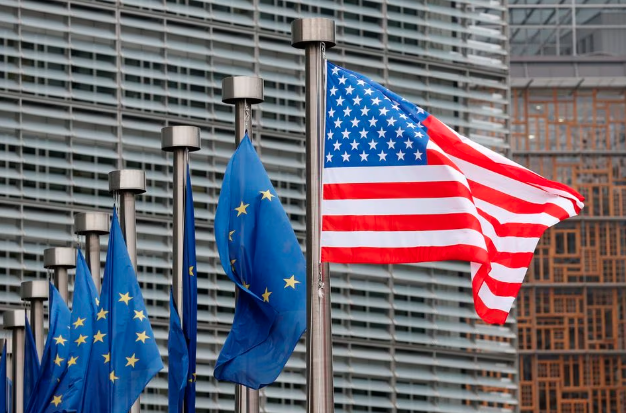Heated trade tensions could cool if the United States and the European Union make concessions on hydrogen. Washington’s Inflation Reduction Act includes subsidies that could slash the cost of the element’s sustainably produced “green” version by 2030. If the EU can negotiate better access to America’s production chain while attractively managing its future import needs, it could help defuse a wider transatlantic spat.
EU leaders on Friday promised action, but aren’t much nearer to a robust answer to the IRA. Either way, both the United States and the EU want to jump-start domestic production of green hydrogen, to reduce future emissions and to prevent China from dominating an increasingly important global market, as it has for solar panels. Right now, 99% of the near 100 million tonnes of annual commercial hydrogen output comes from old-fashioned fossil fuel energy sources. By 2030, the International Energy Agency envisages over 175 million tonnes of global production, with 35% coming from green hydrogen. This uses zero-carbon renewable electricity to split water via electrolysis, producing the same element but without harmful emissions.
Both Europe and the United States understand the role green hydrogen can play in decarbonizing tricky areas like heavy industry and steelmaking. That’s why Europe has made it a centerpiece of a new range of “important projects” subsidies. Yet Europe needs to import the same amount again as the 10 million tonnes it aims to produce domestically by 2030. This opens the door for a bargain: if the United States will help EU manufacturers contribute a wider range of parts and machinery to the supply chain, Europe could reciprocate by providing a ready market for the end product.
Europe needs a solution to keep its big companies from simply relocating factories and capital across the Atlantic to tap the full range of American benefits. The future market for electrolyzers and other environmentally friendly gear will be huge, given the anticipated demand. The U.S. incentive to cooperate is more strategic. Easing tensions with Brussels would smooth diplomatic relations and prime a wealthy market full of customers. Because hydrogen is a future industry more than a current source of jobs and growth, both sides can make concessions and claim victory at the same time.
Source : Reuters





